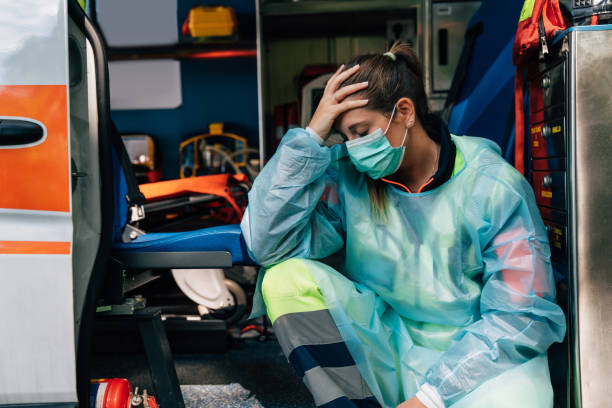What is unprocessed trauma?
PSP are frequently exposed to trauma and may need time to process events that occur during a shift. When PSP transition from work to family life without adequate exit and recovery time to process their experience, they may carry unprocessed trauma. These are the “sticky bits”; an image or a series of events that occurred on-the-job that the PSP cannot stop thinking about. This unprocessed trauma can make it difficult to relax and engage in family activities. The PSP is sometimes unable to leave work behind and may be emotionally distant or irritable. This can impact couple and family relationships. PSP can be physically present but grappling with events from work which interfere with their ability to fully participate in family life.
The effects of unprocessed trauma on PSP families
Try: Skill-building Exercises
Need Something More?
Check out our self-directed Spouse or Significant Other Wellbeing Course.
References for this page (click to expand)
Anderson, L. (2019). The impact of paramedic shift work on the family system: a literature review. British Paramedic Journal, 3(4), 43-43. https://doi.org/10.29045/14784726.2019.03.3.4.43
Beks, T. (2016). Walking on eggshells: the lived experience of partners of Veterans with PTSD. The Qualitative Report 21(4):645-660. https://doi.org/10.46743/2160-3715/2016.2269
Cox, M., Norris, D., Cramm, H., Richmond, R., & Anderson, G. S. (2022). Public safety personnel family resilience: a narrative review. International Journal of Environmental Research and Public Health, 19(9), 5224. https://doi.org/10.3390/ijerph19095224
O’Toole, M., Mulhall, C., & Eppich, W. (2022). Breaking down barriers to help-seeking: preparing first responders’ families for psychological first aid. European Journal of Psychotraumatology, 13(1), 2065430-2065430. https://doi.org/10.1080/20008198.2022.2065430
Porter, K. L., & Henriksen, R. C. (2016). The phenomenological experience of first responder spouses. The Family Journal (Alexandria, Va.), 24(1), 44-51. https://doi.org/10.1177/1066480715615651
Regehr, C., Dimitropoulos, G., Bright, E., George, S., & Henderson, J. (2005). Behind the brotherhood: Rewards and challenges for wives of firefighters. Family Relations, 54(3), 423-435. https://doi.org/10.1111/j.1741-3729.2005.00328.x
Tuttle, B. M., Giano, Z., & Merten, M. J. (2018). Stress spillover in policing and negative relationship functioning for law enforcement marriages. The Family Journal (Alexandria, Va.), 26(2), 246-252. https://doi.org/10.1177/1066480718775739

